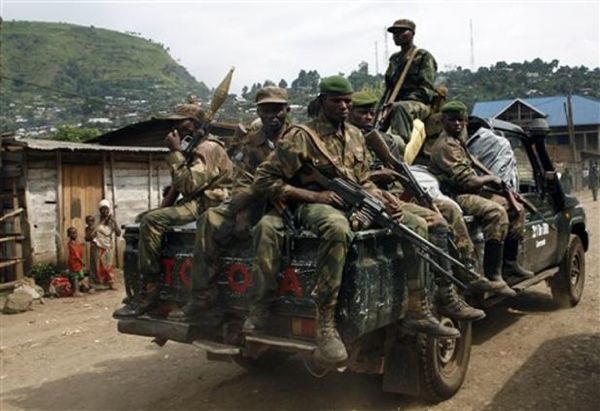Mineral Conflict in Congo Highlights Need For Peace

Over the past few months, the Democratic Republic of Congo (DRC) has been in the spotlight because an armed rebel group, M23, took control of the regional capital of Goma. It is the latest reminder of the instability in a region that will become more important in the years to come.
The DRC is one of the richest countries in the world in terms of natural resources but is classified as the poorest country in the world by the International Monetary Fund. Congo mining resources are estimated to be worth $24 trillion and include the biggest gold reserves in the world, five percent of the world's copper, fifty percent of the world's cobalt, diamonds, oil, tar, and uranium.
However, it's because of its immense reserves of mineral used in tech industries that Congo’s strategic importance for the world will rise in the coming years. Congo possesses an estimated eighty percent of the world's supply of coltan, when refined as tantalum, is a vital component of computers, personal electronics, and mobile phones. The significance of this mineral can be illustrated by the fact that a shortage of coltan led to an abrupt halt in the sales of the popular Sony Playstation 2.
The current situation is a vicious cycle. Precious minerals, especially gold, are smuggled to neighboring countries such as Rwanda, Uganda, and Angola. Then, the minerals are sold to the rest of the world and used to fund armed groups in the region. This allows these groups to control many mines and trading chains, especially in the east. Foreign companies are reluctant to invest in the country and, as a result, most of the mining industry is left underdeveloped.
In recent years, efforts beyond a simple military operation have been made in order to help solve the region's mineral conflicts. A system of tracking the origin of minerals has been advocated for through United Nations resolutions. The Obama administration responded by insisting that the 2010 Dodd-Frank Act include a section requiring companies to disclose if goods such as mobile phones or aviation contain minerals coming from the Congo region.
However, despite the good intentions behind these type of laws, a fine line needs to be drawn between the need to diminish multinationals' indirect funding of war lords and the negative effect of increasing the underground mineral business if the rules become too binding.
To be really efficient in the long term, these actions will require better cooperation between the Congo, multinationals, consumer countries, and international organizations such as the UN, the IMF, and the World Bank. If all the players do not decide that it is in everybody's interest to have a peaceful Congo, the situation will continue to deteriorate.
Last week, the IMF decided to interrupt a loan payment of $561 million because the Congolese government failed to provide sufficient information on how a mining contract involving the sell of a public company to a company based in the Virgin Islands would benefit the Congolese population. It is a reminder that peace is a long way from happening.




